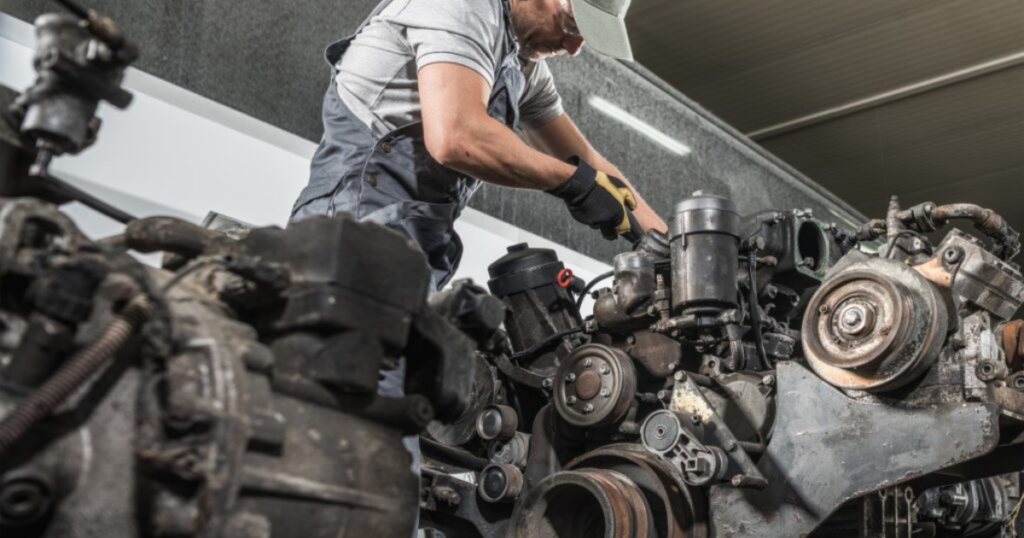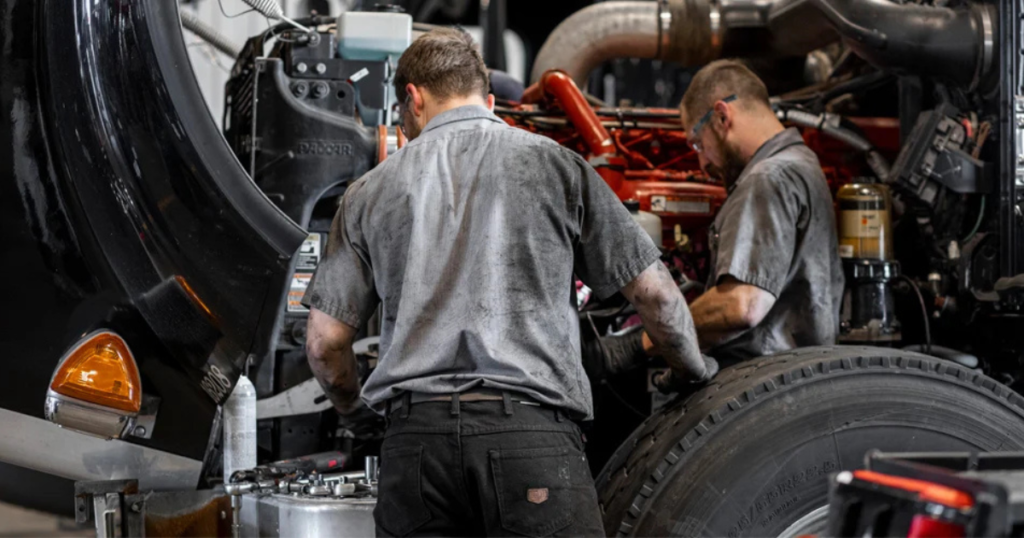Diesel Mechanic Career Growth offers stability, competitive salaries, and opportunities for advancement. However, to achieve long-term success and higher earnings, it is essential to focus on career growth. Accelerating your career as a diesel mechanic requires a combination of technical skills, certifications, hands-on experience, and professional networking.
This guide will provide valuable insights into how you can fast-track your career growth in the diesel mechanic industry, helping you achieve higher positions, increased pay, and greater job satisfaction.
Understanding the Diesel Mechanic Profession
Diesel mechanics specialize in diagnosing, repairing, and maintaining diesel engines used in trucks, buses, construction equipment, and industrial machines. The demand for skilled diesel mechanics continues to rise due to the reliance on diesel-powered vehicles in various industries.
Key Responsibilities of a Diesel Mechanic
- Performing routine maintenance and repairs on diesel engines.
- Diagnosing mechanical, electrical, and fuel system issues.
- Conducting safety inspections and emissions testing.
- Using diagnostic tools and software to troubleshoot engine problems.
- Repairing or replacing engine components, braking systems, and transmission systems.
- Maintaining service records and ensuring compliance with safety regulations.
Steps to Accelerate Your Diesel Mechanic Career Growth
1. Obtain Relevant Education and Training
While some diesel mechanics enter the field through on-the-job training, obtaining formal education can accelerate career advancement. Consider enrolling in:
- A vocational school or technical college offering diesel technology programs.
- Associate degree programs in diesel mechanics for a deeper understanding of engine systems.
- Manufacturer-specific training programs to specialize in brands like Caterpillar, Cummins, or Detroit Diesel.
2. Gain Hands-on Experience
Experience is one of the most critical factors in advancing your career. To build experience:
- Seek entry-level positions or apprenticeships at repair shops, trucking companies, or equipment rental firms.
- Work with experienced mechanics to learn advanced repair techniques.
- Volunteer for challenging tasks to expand your technical skills and troubleshooting abilities.
3. Obtain Industry Certifications

Certifications help validate your skills and enhance your job prospects. The most recognized certifications include:
- Automotive Service Excellence (ASE) Certification – Includes multiple levels of testing for diesel engine repair, brakes, electrical systems, and more.
- Commercial Driver’s License (CDL) – Useful for test-driving heavy-duty trucks and understanding vehicle operations.
- Original Equipment Manufacturer (OEM) Certifications – Offered by manufacturers like Cummins, Freightliner, or John Deere.
- HVAC and Refrigeration Certification – Useful for mechanics working on refrigerated transport trucks.
4. Develop Advanced Technical Skills
To stand out in the industry, focus on specialized skills such as:
- Computerized diagnostics and repair tools.
- Hydraulic systems and heavy equipment maintenance.
- Advanced electrical and fuel injection systems.
- Hybrid and alternative fuel technology.
- Preventative maintenance planning and fleet management.
5. Stay Updated with Industry Trends
Technology in diesel engines is constantly evolving. To stay competitive:
- Attend workshops, webinars, and training sessions.
- Read industry publications like Diesel Power Magazine and Fleet Maintenance.
- Join online forums and groups for diesel mechanics to exchange knowledge and updates.
6. Build Strong Professional Relationships
Networking plays a crucial role in career advancement. You can:
- Connect with experienced mechanics, managers, and industry professionals.
- Join trade organizations such as the National Institute for Automotive Service Excellence (ASE) or the American Trucking Associations (ATA).
- Attend industry events, expos, and trade shows to meet potential employers and learn about job opportunities.
7. Explore Career Advancement Opportunities
Diesel mechanics have various career paths, including:
- Lead Mechanic or Shop Supervisor – Oversee a team of mechanics and manage shop operations.
- Service Manager – Handle customer service, budgeting, and business operations in a repair facility.
- Fleet Maintenance Manager – Maintain and manage large vehicle fleets for logistics or construction companies.
- Diesel Engine Specialist – Focus on advanced engine repair and diagnostics.
- Instructor or Trainer – Teach future diesel mechanics at technical schools or training centers.
8. Consider Starting Your Own Business
If you have significant experience and technical expertise, starting your own diesel repair business could be a lucrative option. Steps to do this include:
- Gaining industry experience and a solid client base.
- Acquiring necessary business licenses and insurance.
- Investing in tools, diagnostic equipment, and a suitable repair facility.
- Developing a marketing strategy to attract clients, such as trucking companies and construction firms.
The Future of Diesel Mechanic Careers

As industries continue to rely on diesel-powered equipment, demand for skilled mechanics remains strong. However, advancements in alternative fuels and hybrid technology may shape the future job market. Some key trends include:
- Increased use of electric and hybrid vehicles requiring specialized maintenance skills.
- Growing demand for telematics and computerized diagnostics in fleet management.
- Stricter emission regulations, leading to more work in engine efficiency and environmental compliance.
- Expanding automation in repair shops, requiring mechanics to adapt to new technology.
By staying ahead of these trends, diesel mechanics can ensure long-term career success and advancement.
Also Read: What Are The Basic Oil Rig Worker Entry Requirements?
Conclusion
A successful career as a diesel mechanic requires more than just technical expertise—it demands continuous learning, industry certifications, professional networking, and a commitment to staying ahead of emerging trends. By following the strategies outlined in this guide, you can accelerate your career growth, achieve higher-paying positions, and explore leadership or entrepreneurial opportunities in the field.
Investing in your education, gaining hands-on experience, obtaining certifications, and networking with industry professionals will set you on the path to long-term success as a diesel mechanic.
FAQs
1. How long does it take to become a certified diesel mechanic?
The time varies based on education and experience. A technical school program typically takes 6 months to 2 years, while on-the-job training can take several years. ASE certifications require relevant work experience and passing exams.
2. What is the average salary for a diesel mechanic?
The average salary for diesel mechanics varies by location and experience, ranging from $45,000 to $80,000 per year. Specialized roles or management positions can earn over $100,000 annually.
3. Do I need a degree to advance in my diesel mechanic career?
A degree is not required, but it can help with career advancement. Certifications and hands-on experience are often more valuable in this field.
4. What industries hire diesel mechanics?
Diesel mechanics are in demand in industries such as trucking, construction, agriculture, mining, public transportation, and government agencies.
5. How can I start my own diesel mechanic business?
To start your own business, you’ll need industry experience, business licensing, startup capital, and a client base. Investing in the right tools, developing a marketing strategy, and building a strong reputation are key to success.



